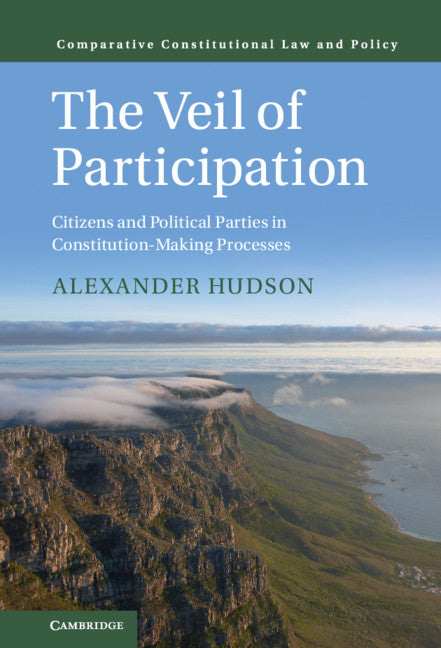Freshly Printed - allow 8 days lead
Couldn't load pickup availability
The Veil of Participation
Citizens and Political Parties in Constitution-Making Processes
Hudson provides new evidence about the roles of political parties, leaders, and citizen-participants in constitution-making processes.
Alexander Hudson (Author)
9781108840071, Cambridge University Press
Hardback, published 6 May 2021
280 pages
15 x 23 x 1.5 cm, 0.49 kg
'Direct citizen involvement in the drafting of constitutions is a normative requirement firmly rooted in the democratic principle that only the people can hold ultimate constituent power. It has also become an increasingly common practice encouraged by international agencies that provide constitution-building assistance worldwide. Yet it is unclear what is the real impact that citizen input has on the final content of constitutions. In this path-breaking book, Alexander Hudson shows that public participation is in most cases unlikely to have a significant influence on the final content of constitutions, but that the extent to which citizens can make their input effectual is primarily determined by the strength of the political parties involved in the drafting process. This work has numerous important implications for the study of constitution making and popular participation and should be widely read by political scientists and scholars interested in comparative constitutional law.' Gabriel L. Negretto, Instituto de Ciencia Política, Pontificia Universidad Católica de Chile
Public participation is a vital part of constitution-making processes around the world, but we know very little about the extent to which participation affects constitutional texts. In this book, Alexander Hudson offers a systematic measurement of the impact of public participation in three much-cited cases - Brazil, South Africa, and Iceland - and introduces a theory of party-mediated public participation. He argues that public participation has limited potential to affect the constitutional text but that the effectiveness of participation varies with the political context. Party strength is the key factor, as strong political parties are unlikely to incorporate public input, while weaker parties are comparatively more responsive to public input. This party-mediation thesis fundamentally challenges the contemporary consensus on the design of constitution-making processes and places new emphasis on the role of political parties.
1. Introduction
2. Theoretical Foundations
3. South Africa
4. Brazil
5. Iceland
6. Cross-National Analysis
7. Participation Reconsidered.
Subject Areas: Constitutional & administrative law [LND], Systems of law [LAF]


